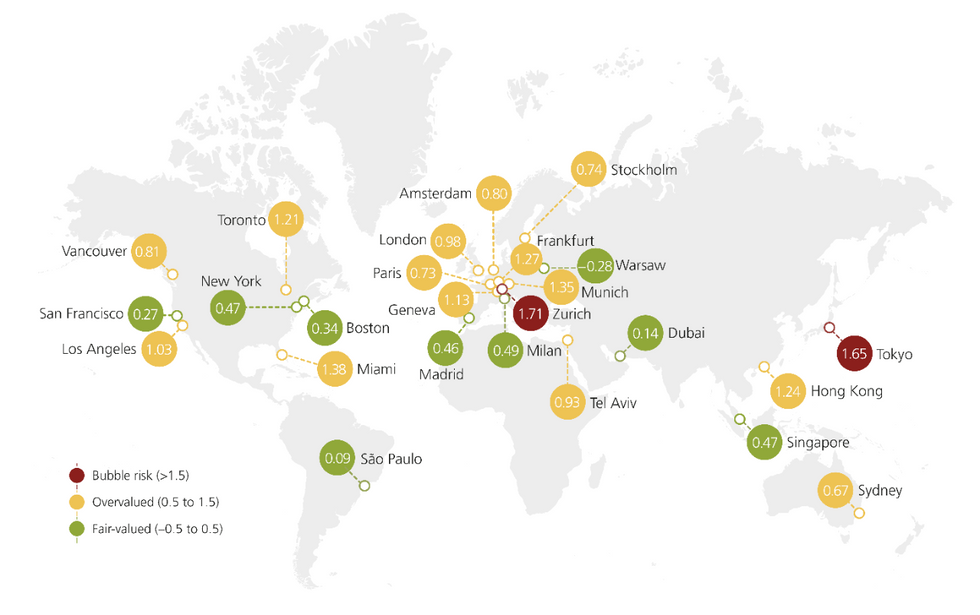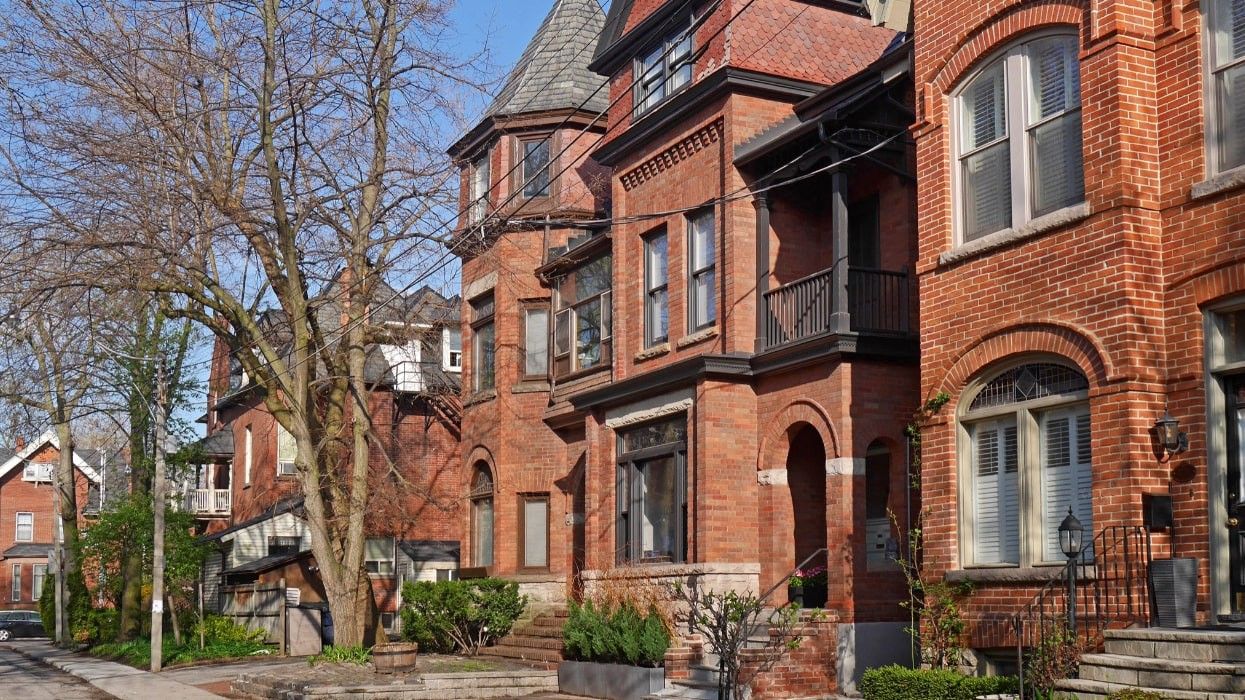Rising interest rates and soaring inflation have helped to quell Toronto’s risk of a housing bubble, but the city’s real estate market remains woefully overvalued.
Toronto placed seventh on the newly released UBS Global Real Estate Bubble Index 2023, with a score of 1.21.
The annual index scores the housing markets of 25 select cities across the world on how at-risk they are of a housing bubble. Cities with a score between 0.5 and 1.5 are considered overvalued, while anything over 1.5 represents a bubble risk.
Only two cities were deemed at-risk in the 2023 edition of the Index — Zurich (1.71) and Tokyo (1.65) — a significant downgrade from last year, when nine cities were placed in the bubble risk category. In 2022, Toronto scored a 2.24, making the city’s housing market the second-most at-risk of a bubble in the world.

"Low financing costs have been the lifeblood of global housing markets over the past decade, driving home prices to dizzying heights," the report reads. "However, the abrupt end of the low interest rate environment has shaken the house of cards."
According to data from the Toronto Regional Real Estate Board, between March 2019 and March 2022, the average home price in Toronto increased by over 64%, while interest rates were slashed from 1.75% to 0.25%. But, starting in March 2022, the Bank of Canada (BoC) began successively raising interest rates, which now sit at 5%. By February 2023 — when interest rates were still at 4.5% — prices had fallen nearly 18% while sales slumped by over 40%.
"In such a heated market environment, it doesn’t take much for sentiment to change quickly: A mix of increasing financing costs and higher mortgage stress test rates tipped the scales," the report states.
As such, Toronto’s risk of a housing bubble has burst, but the market still sits comfortably in overvalued territory. Rather than disappear, pressure has shifted to the rental market, with prices up over the last year.
However, when the BoC temporarily paused rate hikes in the spring, the city’s housing market rapidly showed signs of recovery — prices jumped approximately 8% in two months as sales soared by 30%.
With interest rates set to possibly rise further, the report concludes that it is "premature" to consider a turnaround in the market. But, with demand still very much alive, supply consistently low, and construction levels dwindling, "the seeds for the next property price boom have already been planted."





















